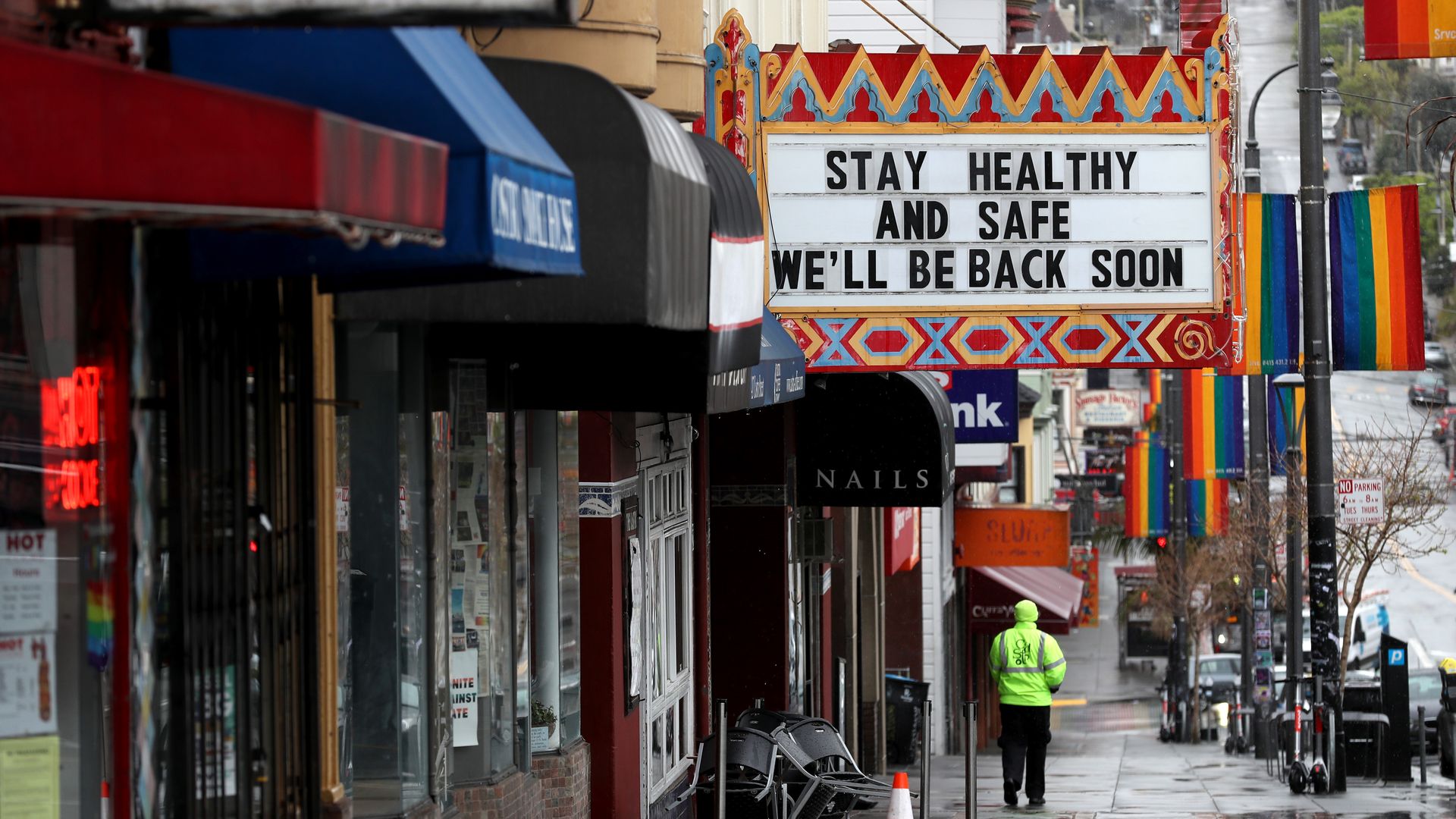Jun 8, 2020 - Economy
U.S. recession officially began in February
Add Axios as your preferred source to
see more of our stories on Google.

Photo: Justin Sullivan/Getty Images
Add Axios as your preferred source to
see more of our stories on Google.

Photo: Justin Sullivan/Getty Images